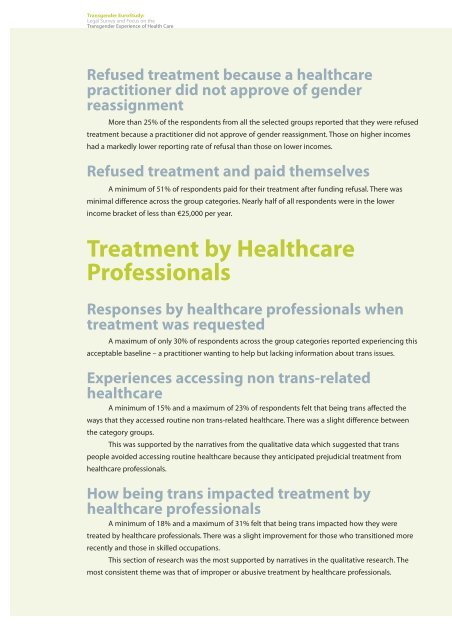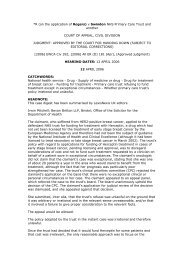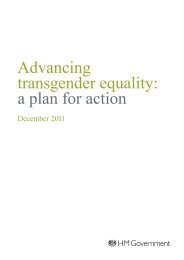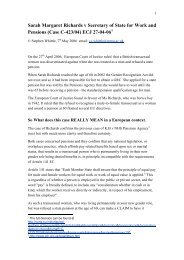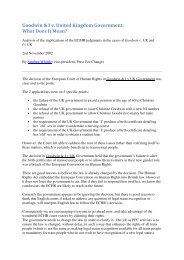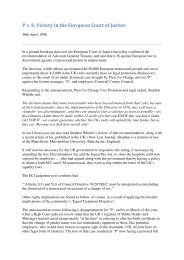Transgender EuroStudy â Legal Survey and Focus ... - ILGA Europe
Transgender EuroStudy â Legal Survey and Focus ... - ILGA Europe
Transgender EuroStudy â Legal Survey and Focus ... - ILGA Europe
Create successful ePaper yourself
Turn your PDF publications into a flip-book with our unique Google optimized e-Paper software.
<strong>Transgender</strong> <strong>EuroStudy</strong>:<br />
<strong>Legal</strong> <strong>Survey</strong> <strong>and</strong> <strong>Focus</strong> on the<br />
<strong>Transgender</strong> Experience of Health Care<br />
Refused treatment because a healthcare<br />
practitioner did not approve of gender<br />
reassignment<br />
More than 25% of the respondents from all the selected groups reported that they were refused<br />
treatment because a practitioner did not approve of gender reassignment. Those on higher incomes<br />
had a markedly lower reporting rate of refusal than those on lower incomes.<br />
Refused treatment <strong>and</strong> paid themselves<br />
A minimum of 51% of respondents paid for their treatment after funding refusal. There was<br />
minimal difference across the group categories. Nearly half of all respondents were in the lower<br />
income bracket of less than €25,000 per year.<br />
Treatment by Healthcare<br />
Professionals<br />
Responses by healthcare professionals when<br />
treatment was requested<br />
A maximum of only 30% of respondents across the group categories reported experiencing this<br />
acceptable baseline – a practitioner wanting to help but lacking information about trans issues.<br />
Experiences accessing non trans-related<br />
healthcare<br />
A minimum of 15% <strong>and</strong> a maximum of 23% of respondents felt that being trans affected the<br />
ways that they accessed routine non trans-related healthcare. There was a slight difference between<br />
the category groups.<br />
This was supported by the narratives from the qualitative data which suggested that trans<br />
people avoided accessing routine healthcare because they anticipated prejudicial treatment from<br />
healthcare professionals.<br />
How being trans impacted treatment by<br />
healthcare professionals<br />
A minimum of 18% <strong>and</strong> a maximum of 31% felt that being trans impacted how they were<br />
treated by healthcare professionals. There was a slight improvement for those who transitioned more<br />
recently <strong>and</strong> those in skilled occupations.<br />
This section of research was the most supported by narratives in the qualitative research. The<br />
most consistent theme was that of improper or abusive treatment by healthcare professionals.


